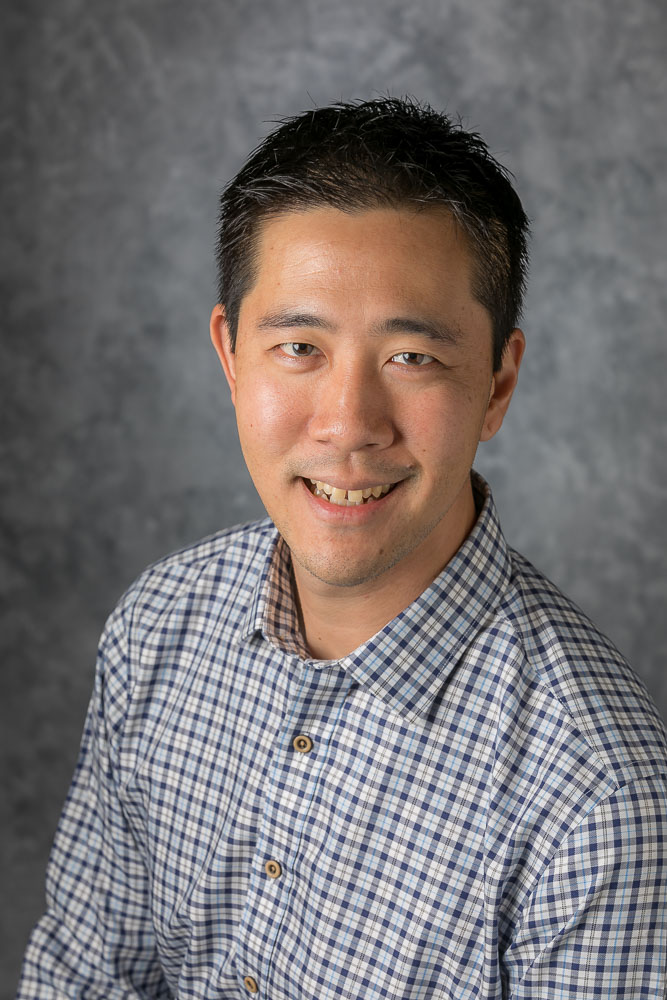What did you study in college?

I was a bit of a wild card in college and changed majors several times. My first major was music performance. I was a state-ranked French horn player in high school and thought I was hot stuff. When I got to college, I realized everybody else was top-ranked, and I actually felt a little out of my league. I moved over to music education, thinking I could be a band director. From there, I went into elementary education to be a schoolteacher.
After my third year of not knowing what I wanted to do, my parents said, “How about getting a business degree?” So I chose a major that would let me graduate the soonest: logistics and supply chain management. My first few roles out of college were supply chain and logistics oriented, and then I got involved in operational work for a software company and developed expertise around data. From there, I became certified in project management and led projects for the mortgage banking industry for more than a decade. After that, I landed at Corptax where I use my project management, data analytics, and reporting skills to oversee projects and initiatives.
Tell me about your current role at Corptax?
I’m the Manager of Reporting and Analytics for the customer operations and support groups within Corptax. That means, in order to help us constantly improve our support services, we gather and analyze information and statistics based on extensive customer surveys. Among many things, for example, we look at customer satisfaction and our net promoter scores. We track whether the number of cases submitted each month are trending up or down, what our first-contact resolution rate is, what our Service Level Agreement achievement is, and so on.
We also perform analytics for our support portal, Connections. We look at the monthly number of users and searches, articles reviewed, our case deflection rate, etc. We also assess factors driving clients to create cases, most-viewed solutions, and solutions used to resolve cases. Those are some of the standard reports we put together.
My work is always exciting and changing. While a part of my job is consistent every month, a lot is ad hoc. It can be a case of, “Hey, can you jump in on this project and see where the analytics can help us move the initiative forward?” I know data very well. I can find patterns, trends, anomalies, and so on. And I can weave these insights into a story that helps my clients make informed decisions.
What do you enjoy most about your job?
I really enjoy the people here—and how much of a family atmosphere it is. One funny story…on my very, very first day at Corptax, I was having an issue with my cube and my monitor arms. Some guy came over and helped me get set up—he was under the desk trying to adjust everything. Ten minutes later, I see the same guy in the breakroom cutting up fresh fruit for everybody, so I thought, “This guy must be the office manager.” And it turns out he was one of our senior leaders, Rick Campbell, Director of Customer Support. He wanted to make sure everybody was taken care of.
That’s how Corptax is—people care. It’s rewarding to work with people I consider friends, not just colleagues. We share a single focus: get the job done. We work hard, we have fun, and we deliver. That’s what I love most about the job.
What is one thing that surprised you about working at Corptax?
The ability to take your career in the direction you want to take it. When you have the desire and initiative to do something new or different within the organization that adds value, leadership supports your career path.
For example. I started nine years ago working on the Client Implementations team. As new solutions were licensed, my team stepped in to support the software side of implementations. I found that clients would often ask me tax process questions. So I started thinking, I can learn more about corporate tax and grow in this role, or I can use my software expertise to add more value to Corptax in a different way.
I started taking on more and more reporting for my group. Soon, other teams were saying, “Hey, Jason’s good at this reporting stuff. Can he do it for these teams, too?” At first, I was a data analyst group of one. Over time, we’ve hired interns full time, and now we’re a group of three and still growing. At Corptax, if you see a worthwhile opportunity you want to pursue, you can pursue it without a bunch of red tape.
Plus, it’s great to offer interns full-time positions. It shows that the special internship program we have at Corptax really pays off. We hire interns at the grassroots level and they learn—and next thing you know, they’re launching a career. I liken it to a sports team. We draft our athletes well, develop them, and then make them key players in our organization. It’s a win-win.
What are some of the things you enjoy most about your clients?
Well, my customers are all internal: Corptax management and the Support Services staff. What I enjoy most about them is how well we collaborate on reaching a common goal. I think many organizations as big as we are can get a bit siloed. One group may not know what another is doing. But we break down those barriers. By communicating about our projects across teams, we often discover that one team can leverage what another team has created or accomplished. Helping my internal clients to interact with and benefit from each other is what I truly enjoy doing.
What is the best advice you were given and who gave it to you?
My parents gave me the best advice. They instilled a work ethic in me that I find very valuable, and that I try to instill in my own children. Their advice was, “When you’re doing something, no matter how big or small, do it to the best of your ability.” For example, if you’re doing the dishes—do it the best you can. Do it for yourself and do it for other people.
They also taught me, “Fulfill your promises to others.” When you tell someone you’re going to do something, follow through with it, even if you may not want to—which can be human nature. Be a good person and live up to your commitments.
Flashback to ten years old, what did you want to be when you grew up?
A fighter pilot. The movie Top Gun had come out a couple years prior, and I thought that was the coolest thing in the world. My older brother, being a typical older brother, shot down that notion real fast. He said, “You know you have to have perfect eyesight to be a fighter pilot and fly planes, right?” And I already had glasses by then. So there went my dream. After that, I wanted to be a ghostbuster. If I couldn’t fly planes for the Navy, I could be a ghostbuster for sure. That’s ten-year-old Jason at a glance.
Corptax Senior Director Clark Roland shares a tough situation, a notable career aspiration, and the best advice he ever received.
about this topic